AMD Ryzen 7 5800U Performance
We are going to do a few quick Ubuntu performance runs just to validate that it also works in Ubuntu and compare to other systems we have reviewed.
Python Linux 4.4.2 Kernel Compile Benchmark
This is one of the most requested benchmarks for STH over the past few years. The task was simple, we have a standard configuration file, the Linux 4.4.2 kernel from kernel.org, and make the standard auto-generated configuration utilizing every thread in the system. We are expressing results in terms of compiles per hour to make the results easier to read:
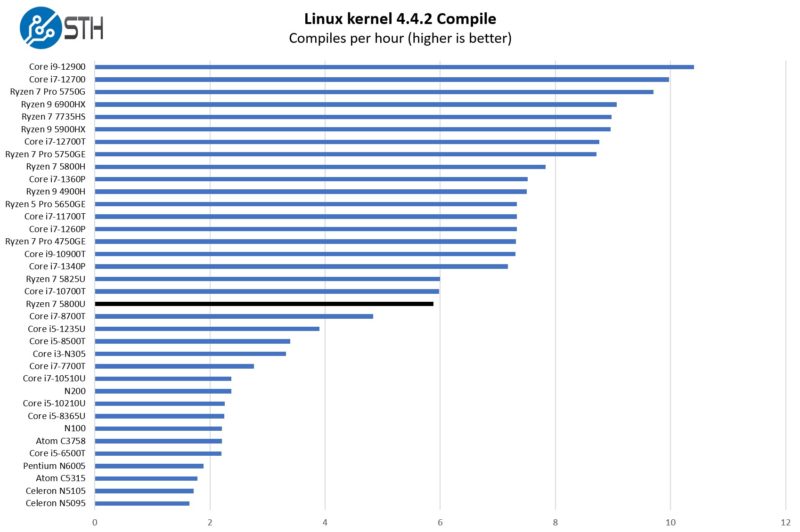
AMD’s Zen 3 U-series CPUs tend to lose performance just based on the TDP envelopes they run in. At the same time, with 8 cores and 16 threads, we still get very good performance.
Note we are not going to explore the integrated GPU side again since it is the older Vega graphics version. If you want something faster graphics-wise, check out something like the Beelink SER7 we reviewed. We have also looked at plenty of Ryzen 5000 APUs with Vega graphics that you can find.
7-zip Compression Performance
7-zip is a widely used compression/ decompression program that works cross-platform. We started using the program during our early days with Windows testing. It is now part of Linux-Bench.
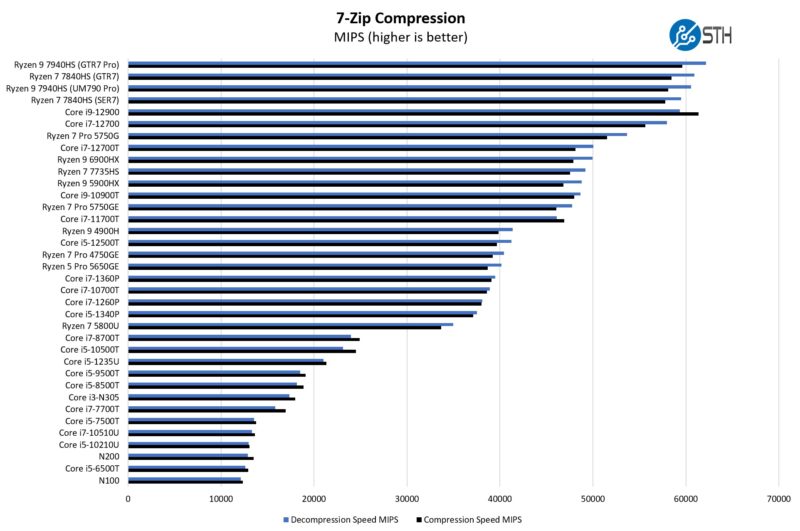
The AMD Ryzen 7 5800U shows that it is both an older-generation Zen 3 CPU and a low-power version at that. Still, the performance is decent.
OpenSSL Performance
OpenSSL is widely used to secure communications between servers. This is an important protocol in many server stacks. We first look at our sign tests:
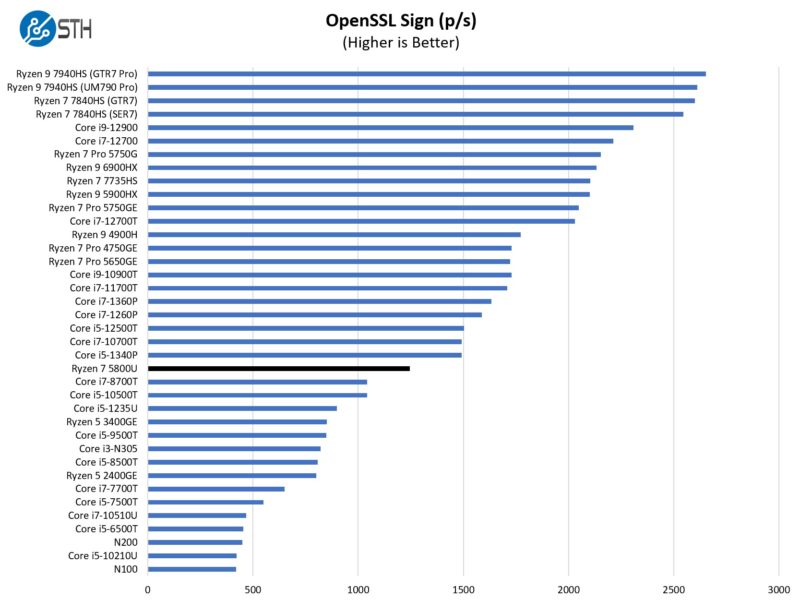
Here are the verify results:
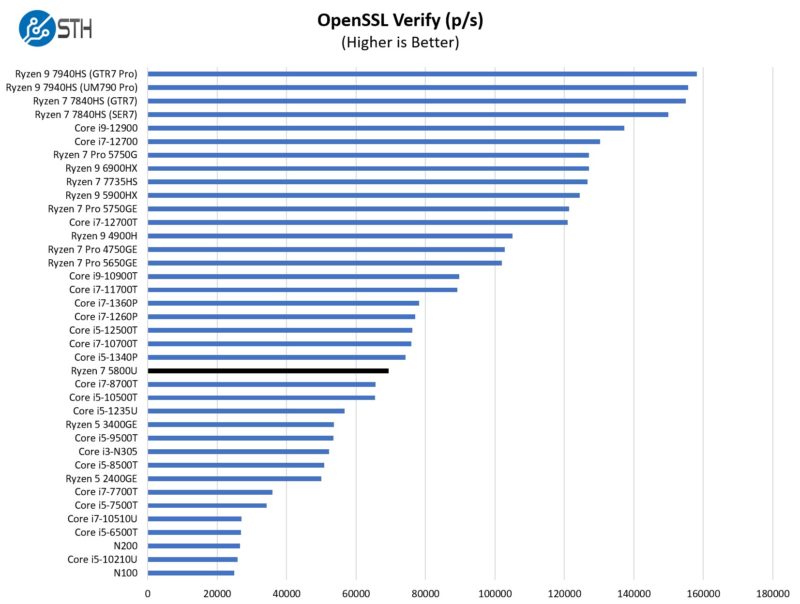
Overall, it has good performance, especially for a fanless system.
HV2000 NVMe SSD Performance and Something Strange
We also wanted to take a look at the HV2000 NVMe SSD. This is a 512GB PCIe Gen3 NVMe SSD, and the performance was OK for that class of SSD. On the other hand, we noticed something very different. See if you can spot it:
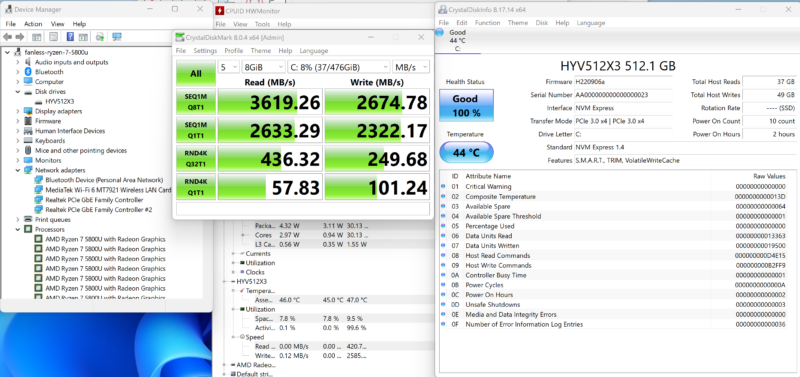
That is right, the serial number is 23. That should make anyone a bit nervous.
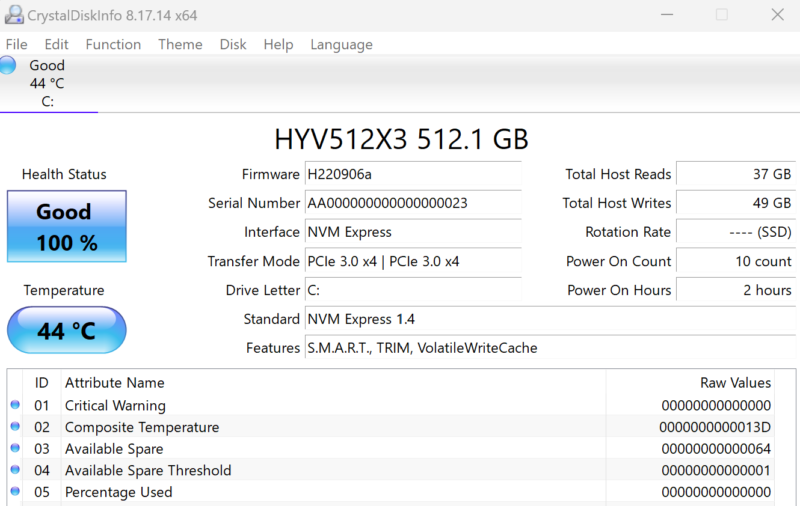
Next, let us get to the power consumption and noise.

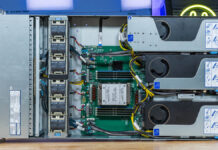
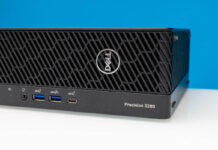
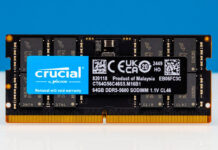
We can tell how much you dislike the gigabit networking by the way every picture caption describes the system as “Fanless 2x 2.5GbE”!
Why would serial number #23 make anyone nervous? It isn’t clear
Shortcomings: only 2 DIMM slots, lack PCIE slot, ECC support, way to attach SATA HDDs(on non-USB interface)
There were only 22 drives before this one. Odds are not a lot of time to see if there are firmware bugs.